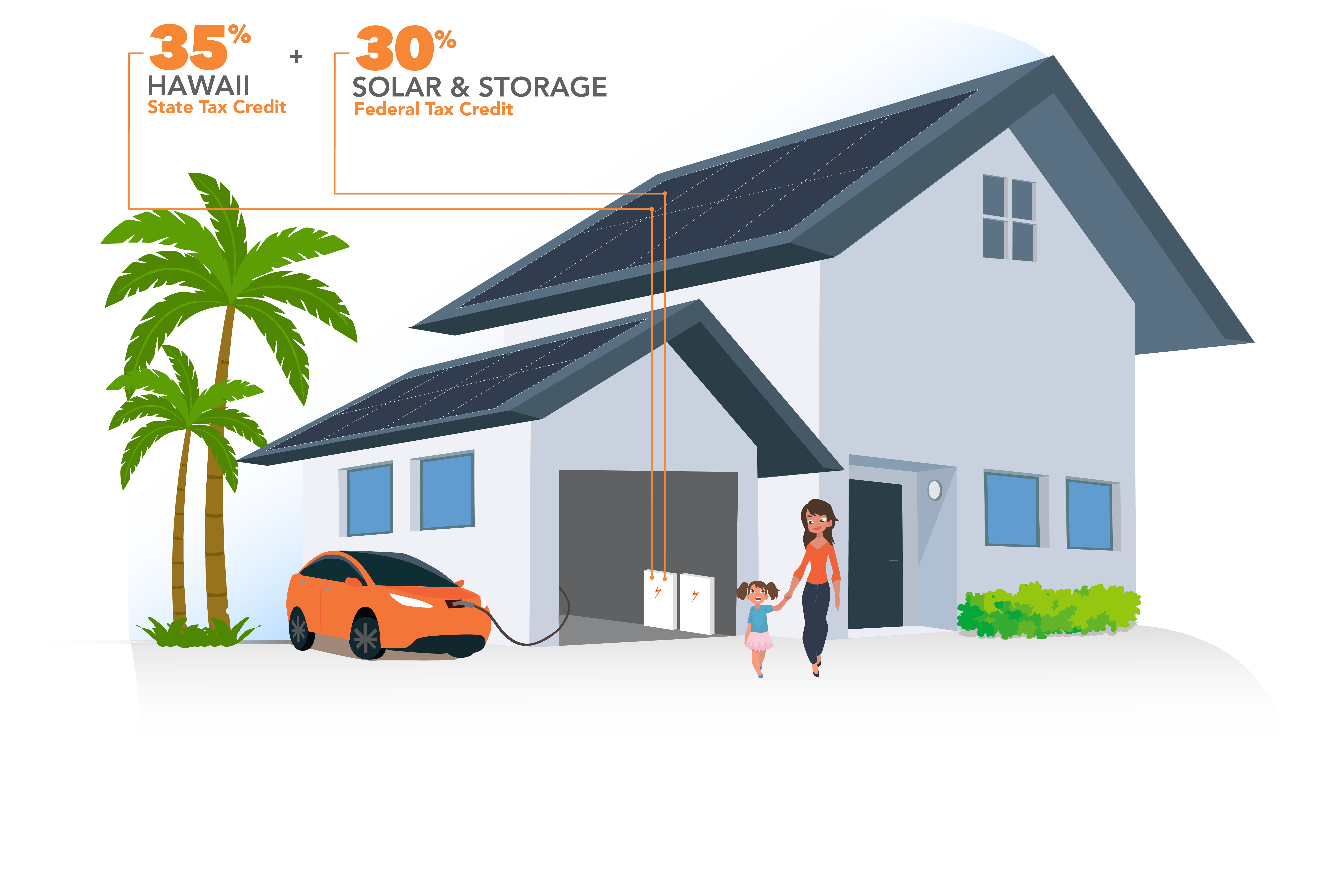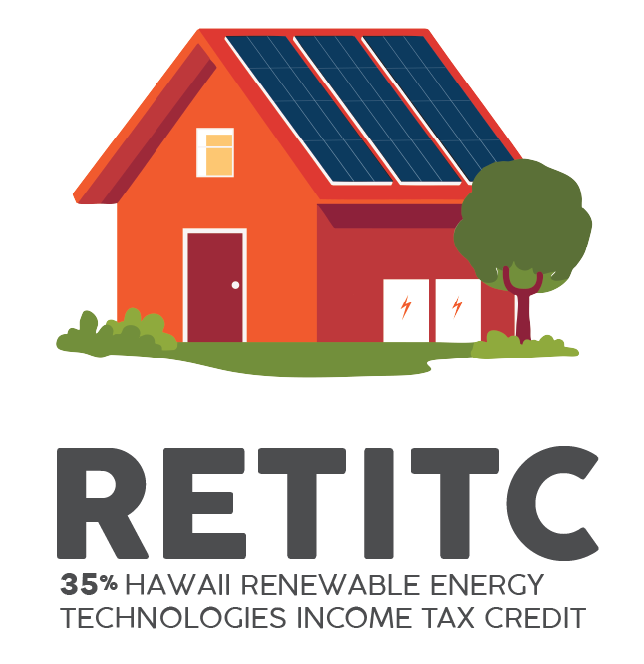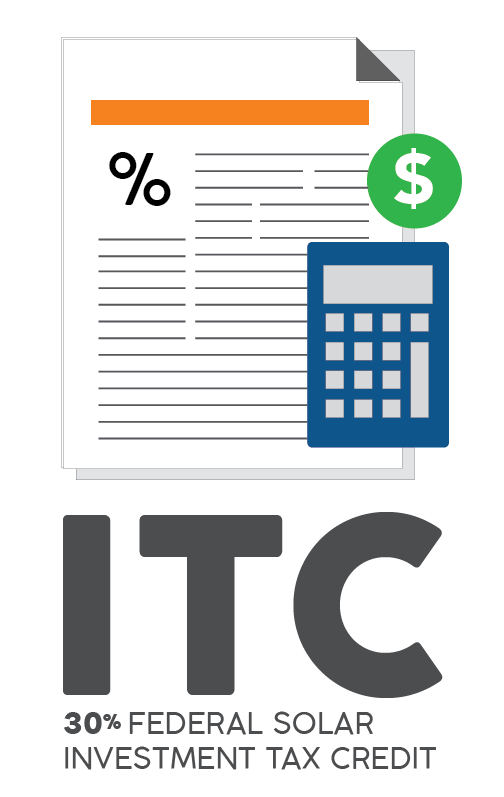Hawaii State & Federal Solar Tax Credits
Learn about the tax benefits of solar.
Solar Tax Credits
The Hawaii State tax credit is still set at 35%. The 30% Federal Solar tax credits are changing.
There are differnt rules for Residential and Commercial solar systems. Time is of the essence for commercial systems to receive the 30% tax credit.
You can find updates for Commercial Federal Solar Tax Credits here.
Read below to learn more about what the current tax credits are, how to claim your credits and any upcoming changes.




Hawaii State Energy Tax Credit
Originally enacted in 1976, the Hawaii Energy Tax Credit allows individuals to claim an income tax credit of as much as 35% of the cost of equipment and installation of a residential photovoltaic (PV) system. The credit is capped at $5,000 per “5 kW system,” and multiple systems may be installed on one home. Systems must be fully installed and capable of operation by the end of the the year in which you are claiming the tax credit. If your credit is more than what you owe in that year, the credits may be rolled forward to subsequent years. Hawaii also offers a “refundable credit” for PV system owners who do not have sufficient state tax liability; the refundable credit is 30% less than the normal tax credit, but state cuts a check directly to the system owner.
30% Federal Solar Tax Credit
Where the Credits Stand, and Why Now is the Time to Act
Right now, both homeowners and businesses can claim a 30% federal tax credit for the cost of a solar photovoltaic (PV) system through the Investment Tax Credit (ITC). These credits are still available and we are encouraging property owners to take advantage of this financial benefit before it’s gone.
For residential systems, projects must be fully installed by December 31, 2025 to qualify for the 30% federal credit.
For commercial systems we recommend “Safe Harboring” your project now to lock in 30% or more.
Learn more about the
rules and deadlines to safe harbor your commercial system.


When you go solar in Hawaii, you can get back up to 65% of your system cost through tax credits — but it’s not an instant discount. Here’s how it works:
1. Federal Tax Credit (ITC) – 30%
- You pay full price upfront (e.g., $20,000).
- At tax time, you get a 30% credit — that’s $6,000 off your federal taxes.
- You must owe at least $6,000 in taxes that year to use it all.
- Unused credit can roll over for up to 5 years.
2. Hawaii State Credit – 35% (up to $5,000)
- You also get a 35% Hawaii tax credit, capped at $5,000 per system.
- This credit reduces what you owe on your state taxes.
- File using Form N‑342 with your Hawaii return.
Real Example
| Item | Amount |
|---|---|
| System Cost | $25,000 |
| 30% Federal Credit | $7,500 |
| 35% Hawaii Credit | $5,000 (capped) |
| Total Credits | $12,500 |
| Net Cost | $12,500 |
⚠️ Reminder: You don’t get cash back — these credits reduce what you owe in taxes. If your tax bill is lower than the credit amount, you may carry over the savings to future years.










